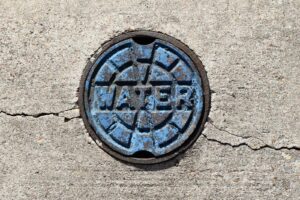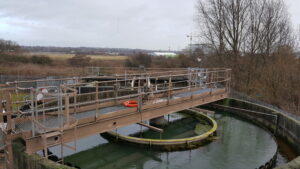Glasgow City Council has published its new Resource and Recycling strategy, announcing plans to become a zero-waste city.
According to the strategy, over 255,000 tonnes of rubbish was thrown away by residents in Glasgow in 2019, and less than 25% of this was recycled. This waste equated to over 774,000 tonnes of carbon dioxide emissions, which were created during the extraction, manufacturing and disposal of the waste.
In a bid to reduce this waste and help their ambition to become net-zero, Glasgow City Council has set out plans to become a zero-waste city, this means minimising the production of the waste but also treating waste as a valuable resource that shouldn’t just be thrown away.
The strategy is built on the principles of waste management – prevention, preparing for reuse, recycling and other recovery such as creating energy from waste and then at the last resort, disposal.
The council also aims to increase recycling rates of the most carbon-intensive waste streams such as food, textiles and plastic while also improving the overall quality and quantity of materials collected for recycling.
Cllr Anna Richardson, the city convener for sustainability and carbon reduction, said: ‘Our ambition for Glasgow to become one of Europe’s most sustainable city must go hand-in-hand with how we approach waste and resources. As a city, we are far too quick to see waste as a problem to be discarded rather than a valuable resource that can be reused or recycled.
‘Seeking to throw rubbish away comes at a cost that has a significant financial and environmental impact. It costs the taxpayer substantial sums to get rid of rubbish in landfill and the less we recycle, the more expensive that rubbish becomes. But more importantly, the carbon footprint of waste can be enormous, especially when we don’t make the most of the resources we seek to throw away.
‘The clear link between household waste and carbon emission means we must begin to think differently about waste if we are to face the climate emergency.
‘The council has a vital role to play in achieving this and we will do everything we can to reduce waste, but also support re-use and recycling options. Culture change can be hard, but if everyone in Glasgow takes greater responsibility for their own waste then we can build a cleaner, more sustainable future for our city.’
Photo Credit – Pixabay

















Hi Pippa,
I followed up your article with an email to Anna Richardson, to discuss clothes recycling in Glasgow. Still waiting for a response…
I am co-founder of Arkdefo, based in Glasgow, and we collect end of life denim to create new designer garments. Shop launch 29.05.2021
Charities don’t sell garments with holes, stains and rips. Textile collectors bag it all up, with most ending up overseas. Unfortunately there is a very high chance of it becoming overseas landfill.
We want this to stop by showing how we can slow down consumption through reuse.
For some reason, the Council & Government do not want to discuss clothes recycling.
Would you be interested in a follow up?
Regards
Andrew